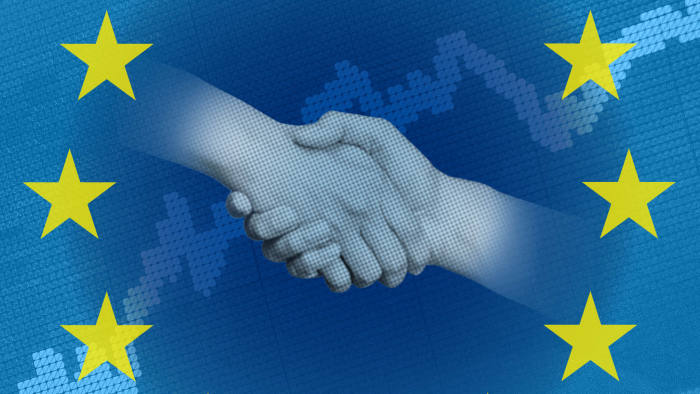Why Mifid spoiled the business of matchmaking

New EU transparency rules have radically altered investor-company introductions
In hindsight, an emerging markets conference put together by Deutsche Bank in New York in September 2017 was something of a high-water mark. Senior executives from companies from Montevideo to Moscow assembled at the elegant Lotte Palace hotel on Madison Avenue. Deutsche, the host, then paired them up in private rooms with asset managers who might want to buy the shares. This old Wall Street dating game, known as corporate access, has fallen out of favour since then, as capital-strapped banks have pared their markets units and as the rise of passive investment has weighed on trading volumes. But another big blow was the introduction in early 2018 of Mifid II, an EU-wide law that, among other things, made banks charge investors for the research they provide, rather than bundling the cost into commissions for trading. Corporate access got shaken up too, as the new regime underscored a principle set out clearly by the UK regulator a few years earlier: if you are going to provide that kind of service, you have to put a price on it. Corporate access was once a core function of any self-respecting bank with a big trading division. Hiring a banquet hall for a set-piece speech from a celebrity CEO was just the starting point: the really valuable interactions would happen offstage, where investors would tap the brains of top executives over coffee and biscuits. After the handshakes, when the investor would put in an order for the stock — or even dump an existing position — the bank would expect to get paid a nice spread for handling the trade. “It’s like a concierge service,” says Hester White, head of client account management at Peel Hunt, a UK broker. “Companies obviously want to get in front of institutions to sell their story, and institutions want to see [them] to ask questions, to work out if this is the company they want to put money into or not.” But Mifid was clear: end-investors such as pension funds cannot be expected to foot the bill, indirectly, for all this glad-handing. After all, there was no evidence that the cost of such events could be linked to better returns. Mifid stipulated that asset managers wanting to take advantage of the access had to pay for it themselves, through their own income statements. The Mifid Effect The EU’s sweeping transparency regulations have forced a change in the way financial firms do business. Over one year on, some are warning Mifid has gone too far. Part One Where now for the rules that rocked European finance? Part Two How Mifid has made its mark in the US Part Three Gatecrashing the corporate access party Part Four More small companies are stumping up the cash for research on themselves Part Five Opinion — Mifid II is contributing to the death of European investment banks Already, the new regime has had some far-reaching effects in corporate access, just as it has had in research. In the UK, fees have continued to tumble. Back in 2014, when the Financial Conduct Authority started telling banks to charge for corporate access, a tête-à-tête with a chief financial officer in a Mayfair hotel might cost a hedge fund manager $10,000. Now the same hour, in a slightly tattier venue, can go for about $150. “It’s human nature,” says one broker. “Once a price becomes scrutinised, you start to think about what you’re paying for.” Across Europe and further afield, brokers report that traffic at conferences is drying up. Even if an institution does not plan to have solo meetings, it may be reluctant even to show up in case it falls foul of Mifid’s ban on receiving “benefits” from third parties. Meanwhile, as the new regime does not impose rules on direct contact between issuers and investors, a lot of big companies are cutting out the intermediaries, internalising a lot of the corporate access functions that once sat in investment banks. Smaller companies — say, a mid-market firm in Germany — might pay a specialist matchmaking platform like Ingage to find a few friendly hedge funds to pad its shareholder register, so its stock can stay liquid enough to remain in an index. Institutional investors, too, have bulked up internal teams to manage incoming requests from companies seeking steady shareholders — and also to make outgoing requests for meetings. Big teams have sprung up at BlackRock, Norges Bank Investment Management, Wellington and Millennium, the New York hedge fund, among others. Stock exchanges, too, are getting in on the access game, offering one-on-one meetings at sponsored forums. The Moscow Exchange, for example, is using a platform called Closir to pair companies with institutions that should be interested in investing in them, based on their stated mandates. “Brokers will continue to play a part in corporate access, but the gaps will get bigger,” says Michael Chojnacki, Closir’s managing director. Many banks are still hanging in there. Even at a few hundred dollars per meeting, a big event can make sense, if enough investors come on board. But plenty are pulling back. Deutsche, for its part, has discontinued its emerging markets conference, as it makes big cuts across the board to boost sluggish returns. The New York gathering two years ago, the 16th of a series, was the last. The German bank still has a few flagship events to get through this year, from Paris in June (consumer) to Las Vegas (technology) in September. But if many more events disappear, investors will shrug and move on. They are getting by without the go-betweens.